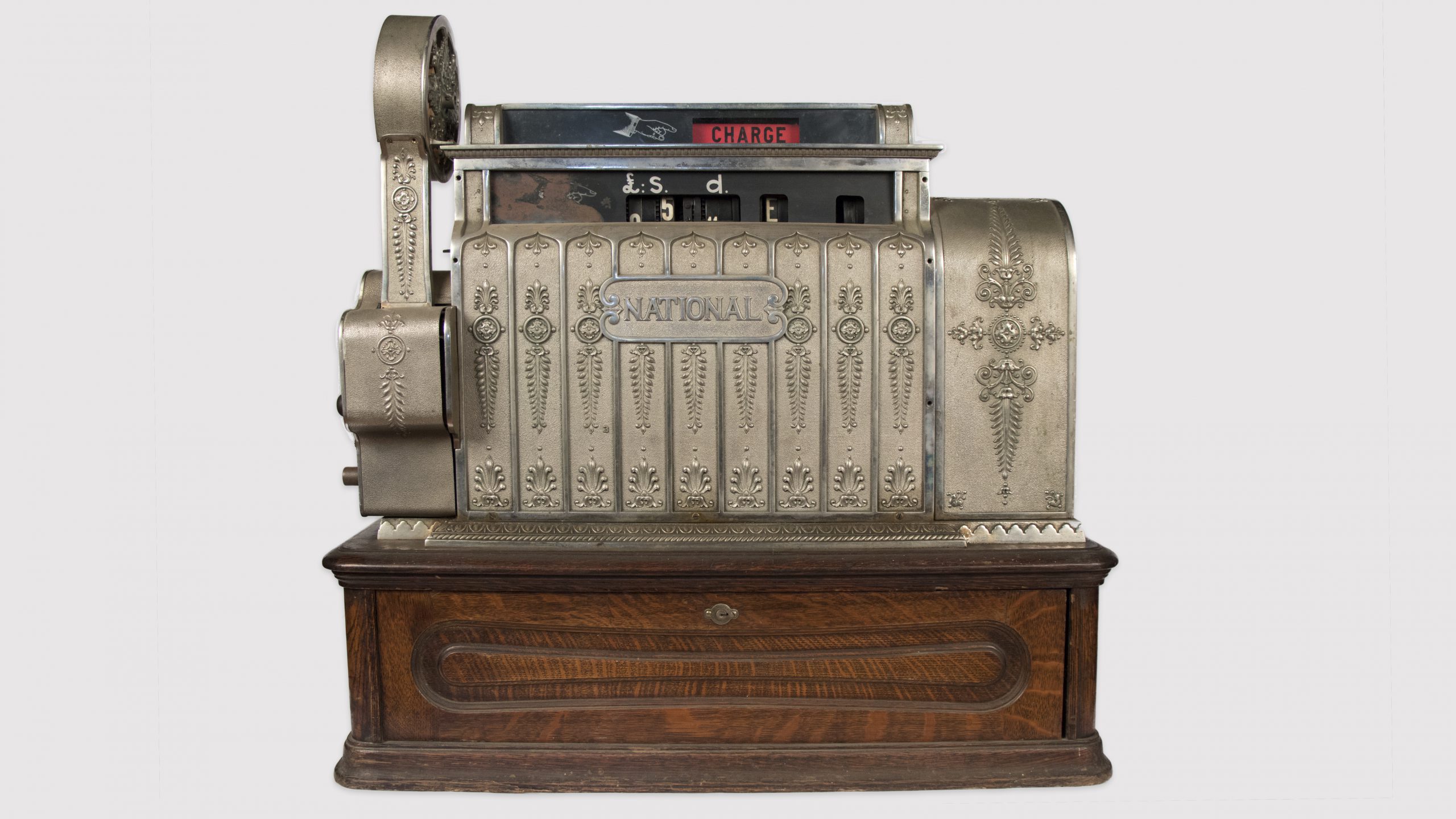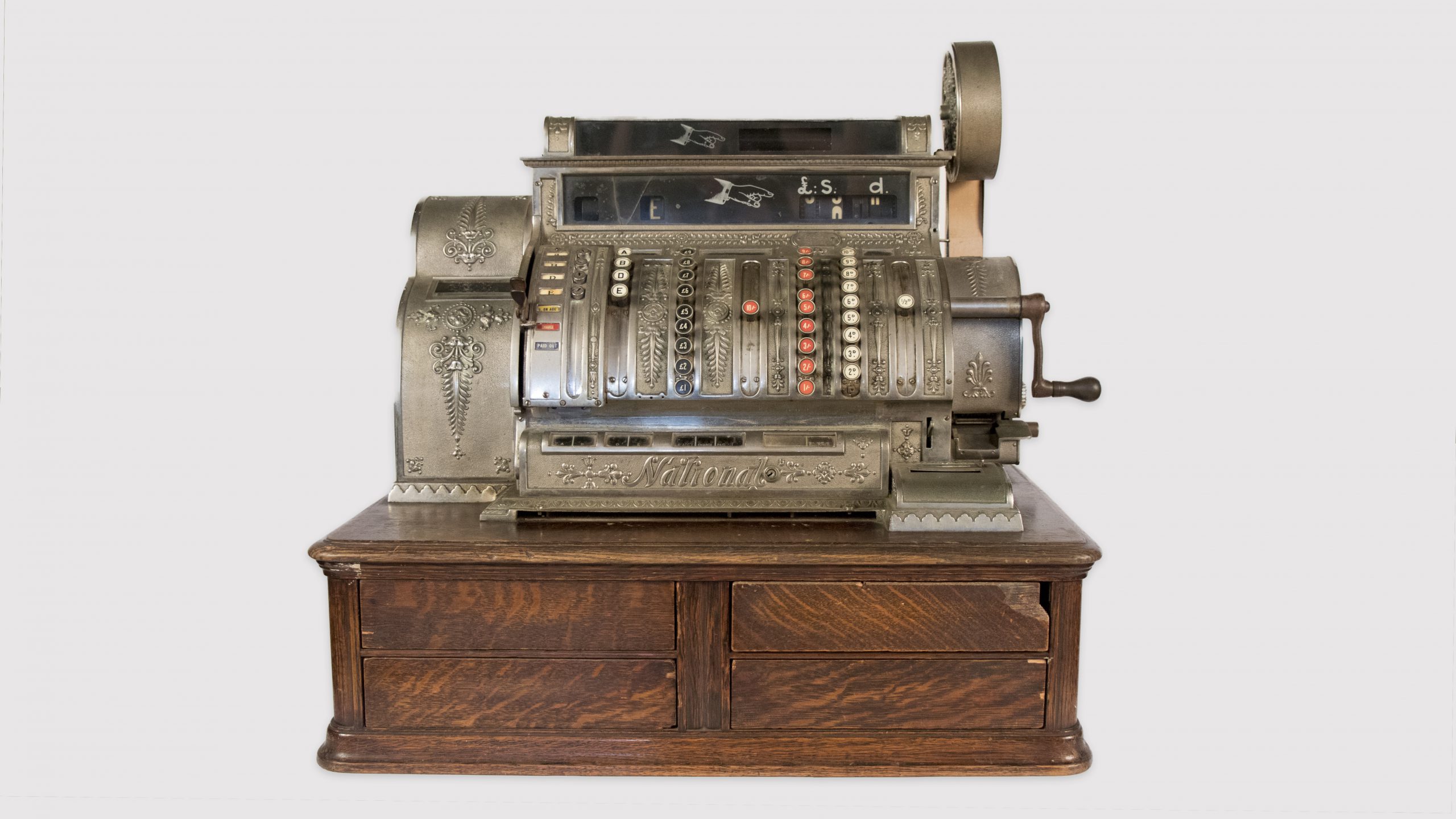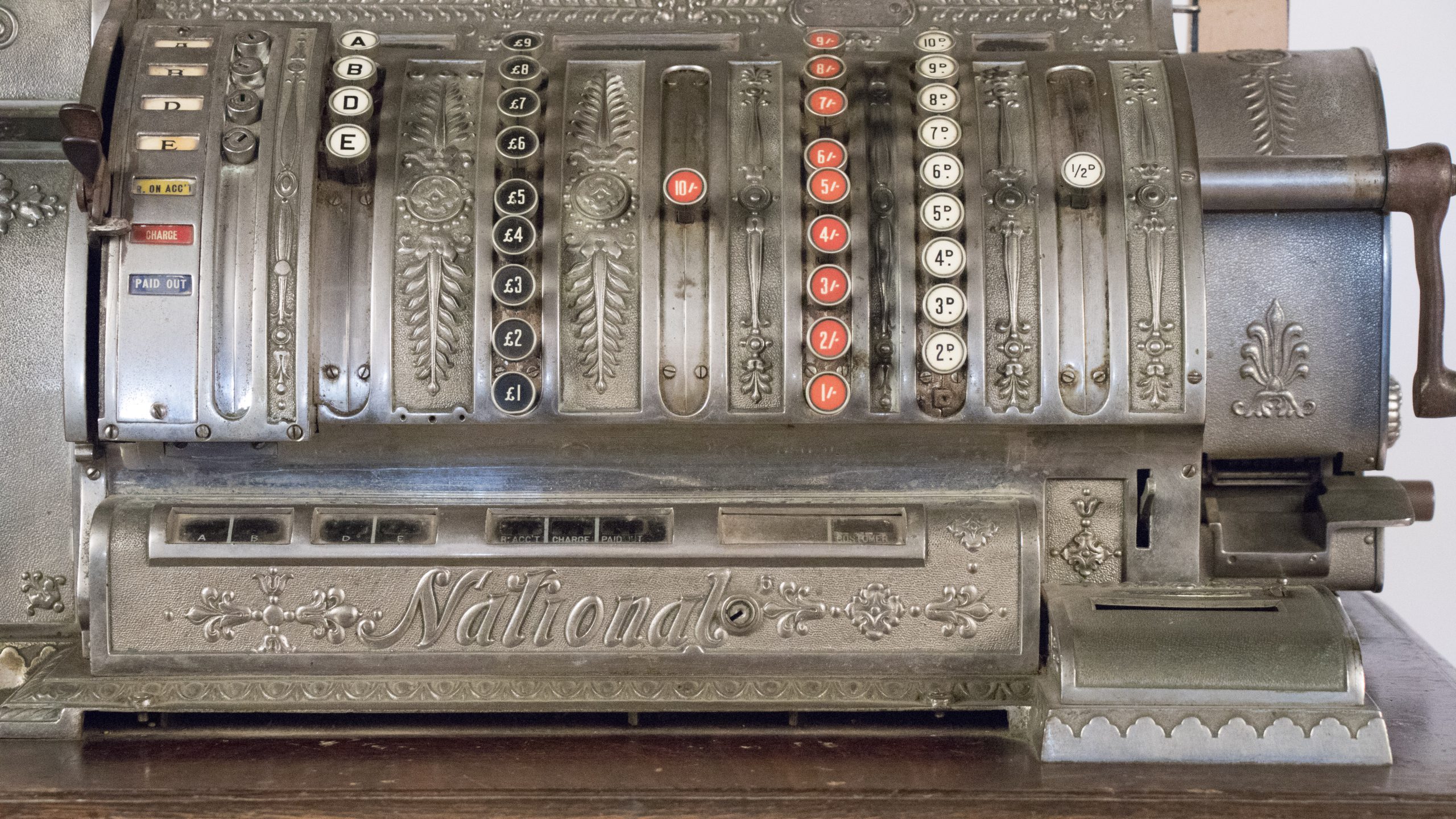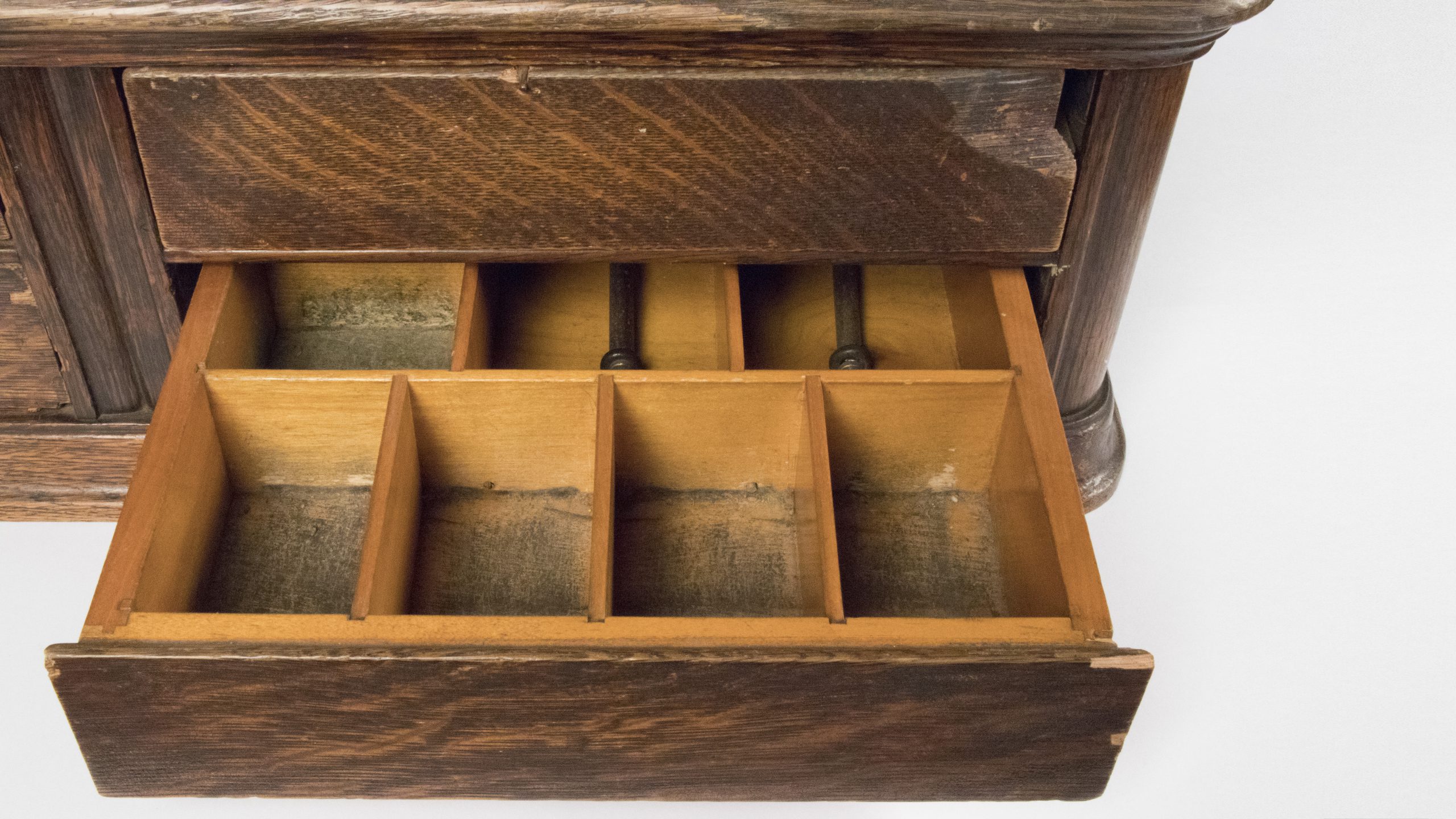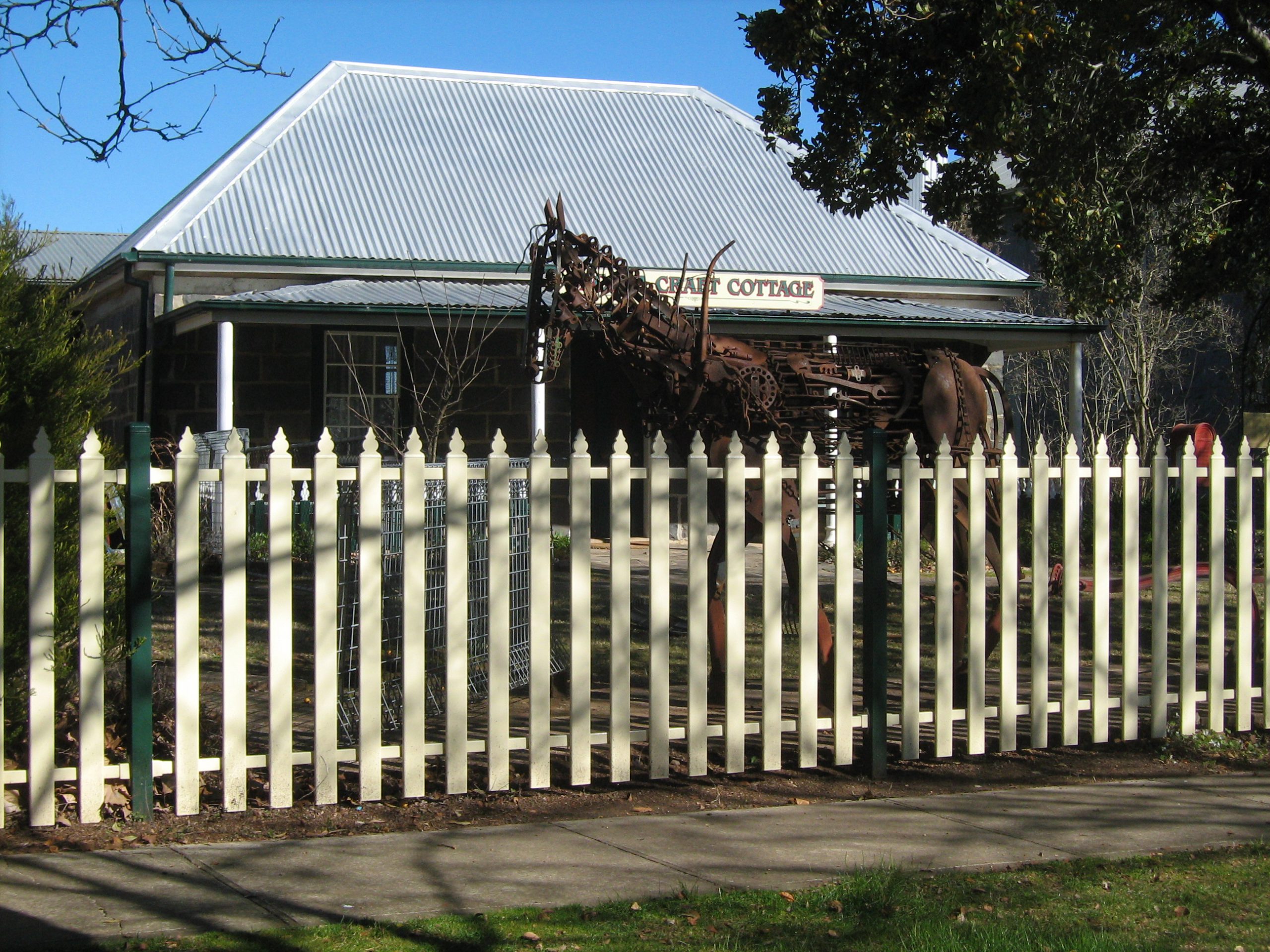The Incorruptible Cashier
Keeping Accurate Accounts at Millthorpe
Around 1905 Walter Bennett installed this impressive cash register at his general store, located on Pym Street in Millthorpe, near Orange. Marketed as the ‘incorruptible cashier’, the solid and beautifully designed register, made of brass and timber, took pride of place on Walter’s shop counter. With each sale the mute machine came to life, when its buttons were pressed to register the store’s cash takings on a narrow paper roll and when each sale was completed a bell rang.
Made by the National Cash Register Company in Dayton, Ohio, the serial number suggests that it was returned to the company, rebuilt, and then on-sold to Bennett in the early 1900s. The relative complex functions this once modern piece of retail machinery performed reflects the changing times in which Bennett ran his store.
From the 1870s to the 1910s the range of food items available in stores like Bennett’s expanded. At the beginning of this period grocery goods mostly comprised dry bulk produce in hessian or cloth bags that the grocer then divided, weighed, and wrapped or bagged in paper to hand to customers.
Overtime store keepers increasingly received food stuffs in branded boxes of tins and bottles that were arranged on store shelves. The range of products available to sell also increased. Items, from soaps, tooth powder, biscuits, pickles, creams, curries and spices, became available in individual packages. The national register helped Bennett make accurate sales and takings – as was promised by its makers.
For Walter the success of his business relied on a wide-range of merchandise, efficient and friendly service, competitive pricing and accurate accounts. To be competitive, Walter was known to set prices at the same or below stores in Orange and Bathurst, hoping to attract new customers in the surrounding rural community.
For those who couldn’t make it to town orders were taken by a staff member on horseback then delivered the same afternoon.


